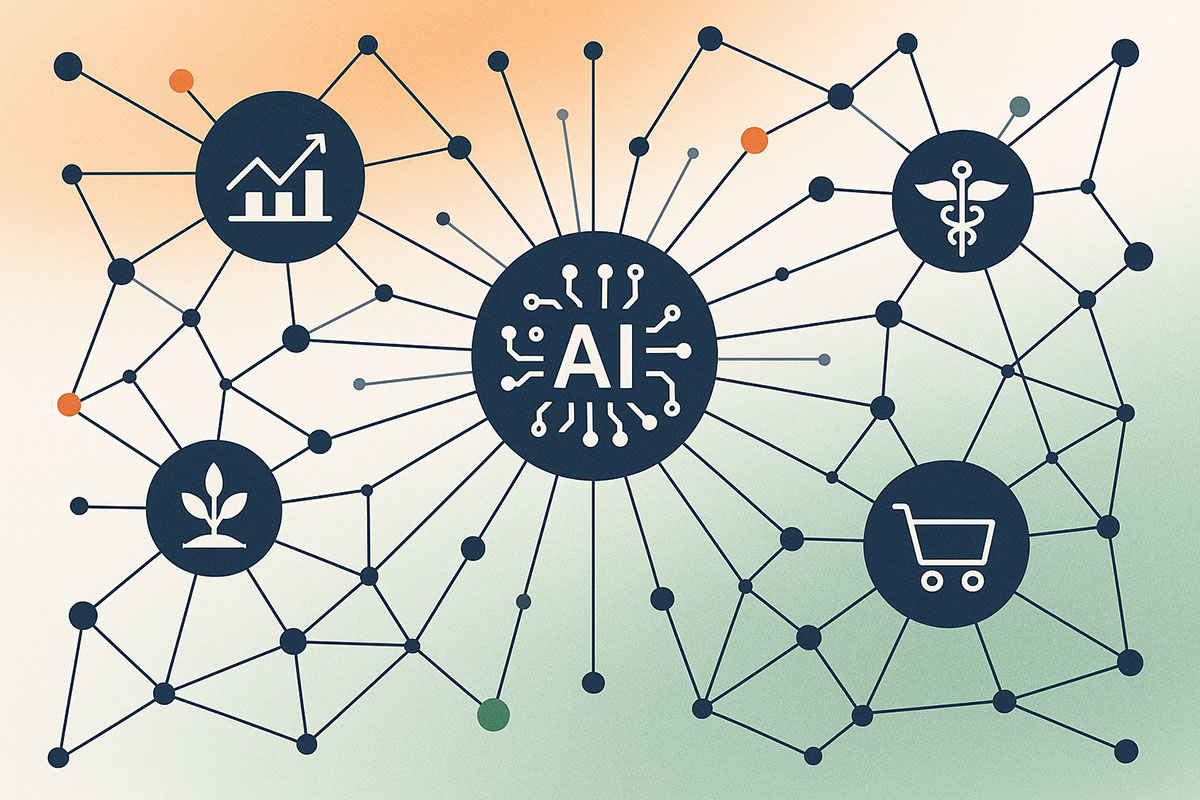Digital Borders: How AI Is Redefining Privacy and Security in 2025
AI is redrawing the map of privacy and security in 2025. From surveillance to digital rights, here’s how AI governance is shaping our future.
TrendFlash

Introduction: The Mismatch Problem
There's a massive gap in 2025: Companies desperately need AI talent, but can't find it. At the same time, thousands of people trained in AI can't find jobs. There's a fundamental mismatch between what companies need and what the market supplies.
This guide explores the skill gap and what it means for both employers and job seekers.
What Companies Actually Need
Not What You Think
Most companies DON'T need cutting-edge AI researchers. They need:
1. Integration Engineers
What they do: Integrate AI tools (ChatGPT, Claude, etc.) into existing systems
Skills needed:
- API integrations
- Prompt engineering
- Problem-solving
- Understanding business context
Supply: Severe shortage (everyone trained for ML, not integrations)
2. AI Prompt Engineers
What they do: Craft prompts to get best results from LLMs
Skills needed:
- Deep LLM knowledge
- Domain expertise
- Communication
- Iterative refinement
Supply: Growing but still short (new role, hard to train for)
3. Data Pipeline Engineers
What they do: Build systems to prepare data for AI training
Skills needed:
- Database design
- ETL processes
- Data quality
- Infrastructure
Supply: Moderate (less sexy than ML, not as much training)
4. ML Ops / MLOps
What they do: Manage ML systems in production
Skills needed:
- DevOps fundamentals
- ML model management
- Monitoring and debugging
- Infrastructure
Supply: Critical shortage (very specialized skill)
5. AI Product Managers
What they do: Define AI product strategy and roadmap
Skills needed:
- Product thinking
- AI knowledge (fundamentals)
- Business acumen
- Leadership
Supply: Short (very few PMs understand AI deeply)
What Companies Don't Need (Saturation)
1. Generic ML Engineers
Why shortage is myth: Everyone trained as generic ML engineer
What's happening: Oversupply, salaries declining, competition fierce
2. Data Scientists Without Business Impact
Problem: Companies have plenty. Don't need more.
What's happening: Junior DS roles disappearing
3. AI Researchers
Why not needed: Only 50 companies globally doing frontier AI research
What's happening: PhD-level researchers with no jobs
Why The Mismatch Exists
Reason 1: Training Lags Behind Market
Universities and bootcamps teach academic AI. Industry needs practical integration.
Reason 2: Prestige vs. Practical
ML research sounds impressive. Prompt engineering doesn't. But industry needs the latter.
Reason 3: Fast Market Changes
Training slow. Market fast. By the time someone is trained, job market changed.
Reason 4: Companies Not Hiring Entry-Level
Junior positions disappearing. Companies want experienced practitioners.
Impact on Job Seekers
The Disappointing Reality
- Thousands trained in ML, can't find jobs
- Jobs requiring 3-5 years experience for "entry" role
- Salaries declining for junior positions
- Certificate doesn't differentiate anymore (too common)
What Actually Works
- Combine ML training with specific domain expertise (healthcare + AI)
- Build portfolio focused on practical problems (not toy projects)
- Get production experience (however you can)
- Learn tools companies actually use (ChatGPT, not just TensorFlow)
The Path Forward
For Job Seekers
- Specialize in practical integration (not pure ML)
- Build real-world portfolio
- Learn companies' actual tools
- Combine AI with domain expertise
- Network (most jobs filled through referrals)
For Companies
- Train existing staff (faster than hiring)
- Partner with training providers for specific skills
- Create entry-level positions (invest in talent)
- Be clear about what you actually need
- Sponsor promising candidates through training
For Training Providers
- Stop teaching generic ML
- Teach practical integration
- Focus on real business problems
- Emphasize portfolio over certification
- Partner with companies on curriculum
Conclusion: The Gap Will Persist (But Evolving)
The AI skill gap won't disappear. But it will evolve. Within 2 years, generic ML engineer surplus, while prompt engineer and MLOps shortage continue.
Those who understand the gap and adapt will thrive. Those caught in yesterday's training will struggle.
Explore more on AI jobs at TrendFlash.
Share this post
Categories
Recent Posts
Opening the Black Box: AI's New Mandate in Science
AI as Lead Scientist: The Hunt for Breakthroughs in 2026
Measuring the AI Economy: Dashboards Replace Guesswork in 2026
Your New Teammate: How Agentic AI is Redefining Every Job in 2026
Related Posts
Continue reading more about AI and machine learning

AI Regulation in Chaos: Trump’s Executive Order vs. State Laws – The 2026 Legal War
A political war is exploding over who gets to control AI. With a new executive order aiming to block states like California from enforcing strict safety mandates, we break down the coming legal battles and what it means for the future of American innovation and AI safety.

The "DeAI" Manifesto: How Decentralized AI is Breaking the Silicon Valley Monolith in 2026
With 90% of the internet now filled with synthetic bot content, the "Dead Internet" theory has become a reality. Decentralized AI (DeAI) is emerging as the 2026 solution for verifiable, private, and censorship-resistant intelligence.

India's New AI Regulation Framework: What Every Tech Company & User Needs to Know (November 2025)
On November 5, 2025, India's Ministry of Electronics and Information Technology (MeitY) released the India AI Governance Guidelines—a landmark framework that reshapes how artificial intelligence is regulated in the country. Unlike Europe's restrictive approach, India's framework prioritizes innovation while embedding accountability. Here's what every founder, developer, and business leader needs to know about staying compliant in India's rapidly evolving AI landscape.